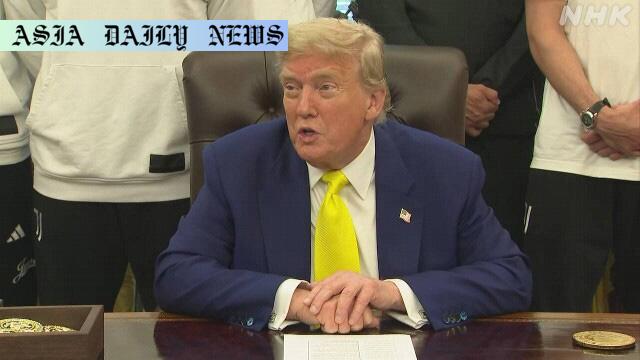Iran conflict: Trump delays final decision on U.S. response to Israel-Iran situation, signaling strategic wariness over nuclear tensions.
Trump has not finalized a decision on responding to Iran.
The U.S. President highlights war complexities and nuclear risks.
He held strategic discussions in the White House’s War Room.
Trump seeks to delay decisions until circumstances demand action.
Trump weighs options, expressing concerns on Iran’s nuclear ambitions.

Trump Delays Decision on Iran Conflict Amid Rising Tensions
US President Donald Trump continues to postpone a definitive response to the escalating conflict involving Israel and Iran. Speaking from the White House, he highlighted his strategy of making decisions only when absolutely necessary, underlining his belief that war scenarios are highly volatile and can change rapidly. He noted, ‘I like to make the final decision one second before it’s done, because things change, especially with war.’
One of the primary drivers of Trump’s cautious approach lies in Iran’s nuclear ambitions. Addressing the issue, he remarked that a nuclear-armed Iran is unacceptable, indicating that he might lean toward military action if Iran refuses to abandon its nuclear development program. The sentiment encapsulated Trump’s strategic dilemma – balancing the imperative to prevent nuclear proliferation against the risks of a military conflict. These deliberations further underscore his administration’s struggle to navigate the volatile Middle Eastern geopolitical landscape.
The War Room Meetings and Strategic Calculations
Trump underscored the importance of thorough deliberation, evidenced by a string of high-level meetings. On Tuesday, he convened his National Security Council, while Wednesday saw the Situation Room – also known as the War Room – become a hub of critical discussions about possible U.S. actions against Iran. Such discussions reflect the complex web of factors weighing on Trump’s judgment, from maintaining security alliances to avoiding broader regional destabilization that could embroil the U.S. in prolonged conflict.
A report from The Wall Street Journal revealed that Trump tentatively approved plans for military action against Iran, showcasing the gravity of the deliberations. However, his decision-making remains fluid, pending changes on the ground or diplomatic breakthroughs. By holding off on the final green light, Trump ensures he retains maximum flexibility to adapt to any shifts in the geopolitical landscape.
Balancing Leadership, Risks, and Geopolitical Stability
Beyond military options, Trump’s remarks hint at an effort to send signals to Tehran. By openly contemplating action – yet delaying it – Trump could be leveraging the threat of U.S. power to coerce Iran into curbing its nuclear ambitions without engaging in direct conflict. This approach, however, carries risks. Iran may perceive hesitation as weakness, emboldening further provocations, or miscalculation could escalate tensions into a broader conflict in one of the most volatile regions in the world.
Nevertheless, Trump asserts his stance aligns with a broader rejection of global nuclear armament, reiterating that if ‘it’s a choice between fighting and them having a nuclear weapon, you have to do what you have to do.’ Such statements underscore the stakes involved, not just for the U.S. but for global stability, as the specter of nuclear conflict looms large over these discussions.
Conclusion: A Decision-Making Process Under Scrutiny
Trump’s cautious approach to the Iran conflict exemplifies the complexities of 21st-century geopolitics and war strategy. While his preference for last-minute decisions reflects pragmatism in rapidly evolving situations, it also invites scrutiny on whether such tactics sufficiently balance risks and rewards. As the international community watches closely, Trump’s eventual decision will likely shape not only U.S.–Iran relations but also the broader dynamics of power, diplomacy, and security in the Middle East.
Commentary
The Delicate Balance Between Action and Restraint
Donald Trump’s approach to the Iran conflict highlights the perennial tension world leaders face – balancing decisive action with strategic caution. In an era where decisions can ripple globally in an instant, Trump’s choice to delay the final order underscores a calculated effort to weigh all possible outcomes before acting. While some may view this as an example of prudence, others might argue it exemplifies indecisiveness in a moment requiring strong leadership.
Iran’s nuclear ambitions are undeniably a flashpoint, and Trump’s stance – rejecting the prospect of a nuclear-armed Iran – aligns with years of international opposition to nuclear proliferation. However, his pointed remarks about ‘fighting versus allowing a nuclear weapon’ encapsulate a tough, zero-sum view of the situation. Such rhetoric risks polarizing the debate further, leaving little room for diplomatic solutions. While Trump’s strategy emphasizes the gravity of Iran’s ambitions, it inadvertently limits the flexibility required to navigate a complex geopolitical chessboard.
Trump’s Wariness of Iran: Justified or Overcalculated?
It is essential to consider the broader implications of Trump’s hesitancy to act decisively. On one hand, his decision to convene multiple security meetings before committing to military action reflects an understanding of the high stakes involved. Diplomacy and alliances are critical in managing any fallout from an escalating U.S.–Iran conflict, especially in a region as volatile as the Middle East.
Yet, perceived hesitation could embolden Iran or even other adversaries, testing Trump’s resolve in future engagements. Even as Trump seeks to maximize room for maneuver, the geopolitical clock ticks faster, and the longer he delays, the harder it may become to secure favorable outcomes.
Final Thoughts on Strategic Posturing
Trump’s gamble on delaying a final decision is both high-stakes and highly visible. While patience allows for better-informed decisions, it also risks opening the door to miscalculations, emboldened adversaries, or diminished credibility. As the situation unfolds, one thing remains clear: Trump’s strategy will likely set a precedent for future U.S. engagements. Whether it will be remembered as a masterstroke of statecraft or a misstep in crisis management remains to be seen, but the lessons derived from this moment will undeniably shape the contours of global leadership for years.


